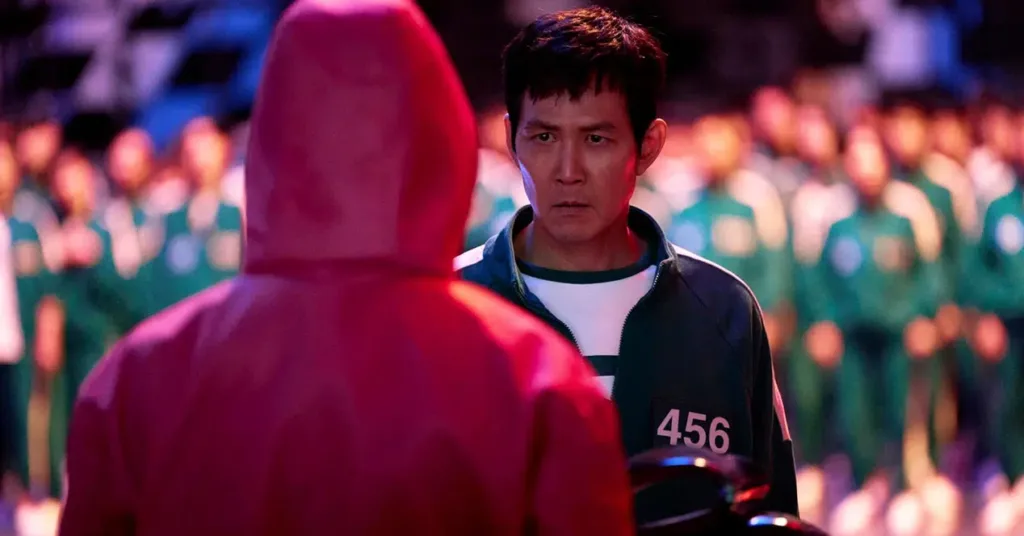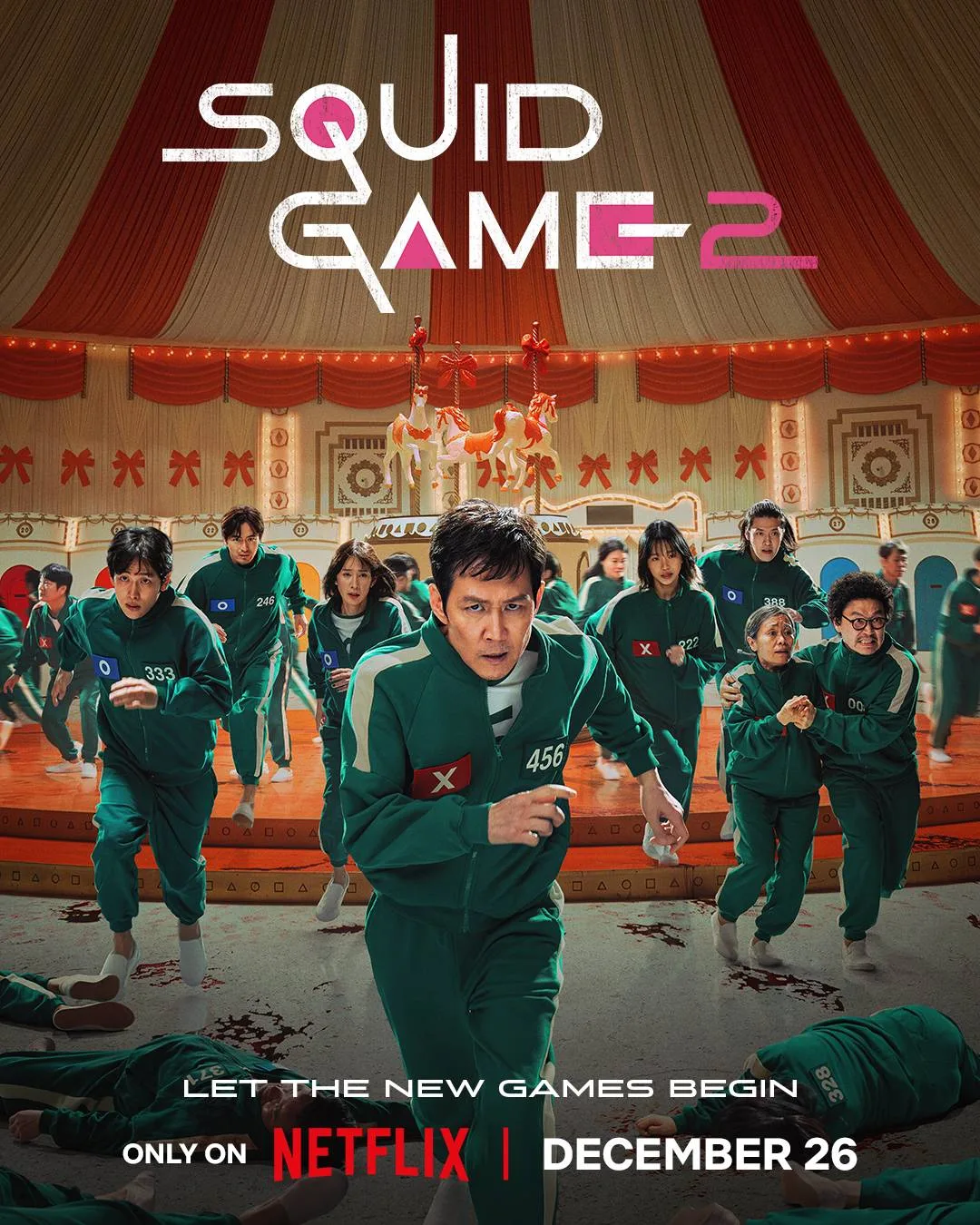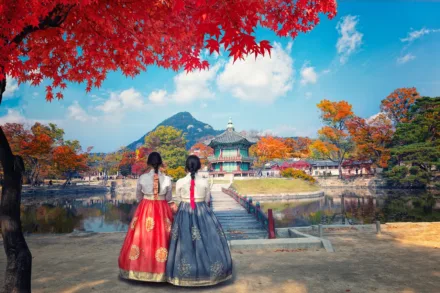Finally, the long-awaited Season 2 of Squid Game has aired. The second season of Squid Game dives into a darker and more emotionally charged narrative, though it struggles with originality. Lee Jung-jae reprises his role as Gi-hun, now driven to dismantle the ominous organization behind the deadly games. The introduction of new characters and increasingly twisted games ensures that the tension remains but not high enough throughout the seven episodes.
Building on the immense popularity of Season 1, expectations were high; however, this season had several disappointing aspects. Here are five drawbacks and two suggestions for improvement.
Squid Game Season 2 Drawbacks
1. Slow Story Progression
The pacing of Squid Game Season 2 felt generally slow, particularly in the first few episodes, where the tension dropped significantly, and it took too long for major events to unfold. This may have led to viewer boredom.
2. Lack of Character Development
The psychological changes and backgrounds of key characters were not adequately explained. While Season 1 effectively showcased each character’s story, this season lacked depth in that area, making it difficult for viewers to emotionally connect with new characters whose motivations were unclear.
3. Decreased Tension
The level of suspense present in Season 1 was notably diminished in Season 2. The repetition of game settings and rules made it challenging to feel a renewed sense of tension, leading to predictable developments that could cause viewers to lose interest.
4. Repetitive Settings
Many elements already used in Season 1 were recycled in Season 2, which diminished freshness. For instance, similar formats or rules for certain games were reused, preventing viewers from experiencing something new.
5. Predictable Ending
The predictability of the ending was a significant drawback. Unlike the many twists in Season 1, Season 2’s conclusion felt too obvious, leaving little room for surprise or excitement.
Cinematography and Visuals
Departure from the Established Visual Style
Squid Game Season 2 represents a departure from the established visual style of the first season. In the second season of the drama we are faces with an increased use of handheld cameras and dynamic movements. These came along with subtle shifts in the color palette and technical choices. Together they contribute to a different viewing experience. While some viewers and critics appreciated these changes, finding them to be some kind of evolution or a reflection of the story’s shifting tone, others including myself found the new approach less cinematic and at times harmful to the show’s tension. The director’s intention, as suggested by the move towards a more reality TV-inspired style to mirror the unpredictability of the narrative, provides some context and justifications for these stylistic choices.
Ultimately, the cinematography of Squid Game Season 2, while maintaining some of the visual hallmarks of the original, presents a more fluid and less controlled aesthetic. Some of you, however, might find it interesting or even refreshing. At the very end, you are the final judge. Go and watch both Squid Game seasons either with subtitles or english dubbed and decide for yourself. You can always cast your opinions on the comments section below.
Suggestions and Hopes for Improvement
1. Adjust Story Tempo
There is a need to adjust the story’s tempo to avoid spending too much time before significant events occur while maintaining appropriate tension throughout. This could enhance viewer immersion.
2. Deepen Character Exploration
Concrete measures are needed for character development. By delving deeper into each character’s background and motivations and explaining their psychological changes more thoroughly, viewers could form stronger emotional connections with them. Despite the many shortcomings of this season, there is ample room for improvement. I do hope for a better experience in the next season.
Overall impression
A Critique of Capitalism and Ethical Dilemmas
Continuing its sharp critique of capitalism, the series expands the conversation to include new ethical debates surrounding collective decision-making and moral responsibility. After a three-year hiatus, creator Hwang Dong-hyuk presents a sequel that not only meets fan expectations but also raises a few questions about its novelty in comparison to the first season. Since its debut in 2021, the show has captivated millions, masterfully blending elements of thriller, drama, and social commentary.
Gi-hun’s Transformation
At the core of the narrative is Gi-hun, who emerges from his harrowing experiences richer—by 45.6 billion won—but still in search of peace and purpose. Plagued by guilt and a relentless quest for justice, he resolves to infiltrate the games once more to dismantle the horrifying competition. But his plan to confront the leader fells short and he is once again trapped in the games. From the beginning, Gi-hun’s evolution is apparent; he is a much darker character, facing familiar horrors with newfound determination.

New Characters and Complex Games
Alongside returning faces, new characters add depth to the story line, including a persuasive antagonist portrayed by rapper Choi Seung-hyun (T.O.P.) and a young crypto investor that mirrors the economic struggles faced by Korea’s youth. The second season introduces fresh games that challenge participants’ physical and mental limits. While some iconic elements, like “Red Light, Green Light,” make a return, the plot thickens with intricate challenges that test the players’ moral compasses and alliances. A significant twist this season is a rule requiring participants to vote on whether to continue after each round, creating ethical dilemmas that provoke thought about the nature of justice and decision-making in a democracy overshadowed by fear and greed. Critics have recognized the attempts to introduce new challenges but also pointed out a perceived decline in originality, despite the season being darker and bloodier than its predecessor.
Themes and Future Prospects
The overarching theme remains a critical examination of capitalism and the resulting inequalities, deepening discussions surrounding social injustice and moral challenges in an increasingly competitive society. Although this season consists of only seven episodes, it leaves an unfulfilling impression. Hwang has already confirmed that he is working on a third and final season slated for release in 2025, promising to address the unanswered questions.
What do you think? Leave your comments and show impressions bellow.








Leave a Comment